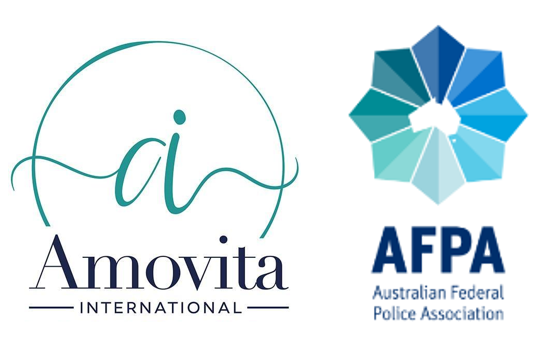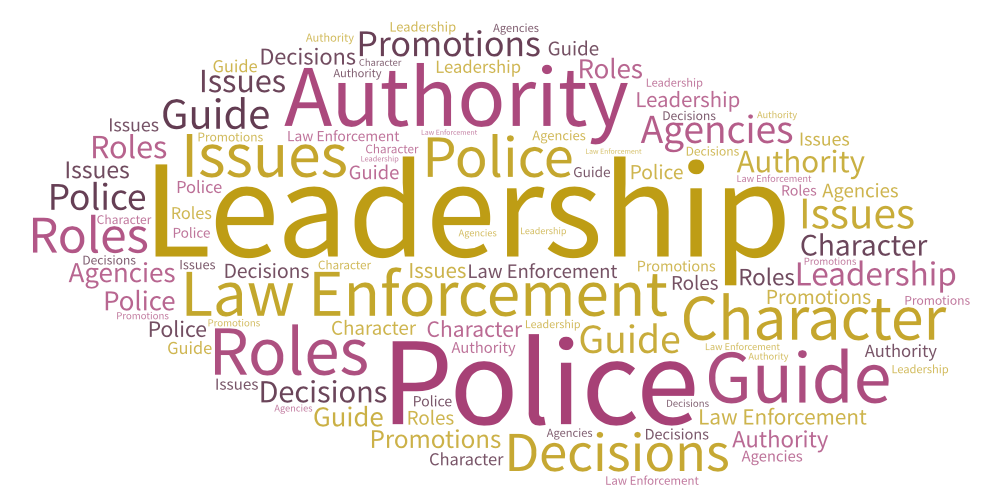The LAWS Model to Uplift Leadership Capability
Tracey Harris PhD Candidate Griffith University, CEO Amovita International
Alex Caruana President Australian Federal Police Association
Elyse Leonard Operations & Business Advisor Amovita International
Paul McCue General Manager Australian Federal Police Association
Background
Police officers encounter psychological stress daily and frequently observe and deal with complex situations that can profoundly impact their mental health and quality of life. Due to far reaching societal challenges, front line police are frequently exposed to life-threatening situations which increase the risk of elevated stress levels. Over time, if not addressed, the accumulation of cortisol increases the imminent probability of health issues and, if unresolved, can lead to more serious and long-lasting problems.
In an international study between Australia and the United States (Drew & Martin, 2023) focused on police wellbeing, 44% of police continually struggled with stress, depression or anxiety that was measured at a moderate to severe level. Police reported the likelihood of future attempts to take their own life, and over 13% reported being suicidal during the previous year. Compared to the general population, police face a 54% higher risk of this type of fatality. When asked where they seek support, police indicated they predominantly talk to their spouse or colleagues, with only 22% likely to engage with professional support or coaching.
Overall, the stigma associated with the language of mental illness, and lack of confidence in professional services, remain a barrier for many police accessing regular debriefing and a place to refuel. As we can see from this overview, to address these complexities, risk reduction strategies require new thinking in the leadership realm. This crisis calls for the need for change to happen urgently in the way leaders are supported, trained in the latest information about neurocare and leadership capability, including the use of key resources including the use of leadership models.
Leadership Capability
Globally there is limited training focused on essential concepts related to leadership capability and the use of models that provide leaders with the skills and knowledge necessary for conducting effective conversations that enhance wellbeing outcomes. There are also no known models in which police leaders can evaluate the effectiveness of their leadership. Without a change in the way that leaders are trained in capability and supervision, mental health issues will continue to plague law enforcement roles.
The LAWS™ model developed by Amovita International has been specifically designed for police leaders to understand the importance of focused discussions relating to the law enforcement/professional aspects of policing, administrative/operational requirements, support mechanisms through the use of neurocare language, and how they draw out knowledge that connects wellness to policing skills.
The model incorporates four domains of leadership capability with an inbuilt evaluation process to understand where conversations are focused, therefore encouraging police to better reflect on their sense of the professional role through their leader’s range of capabilities.
The LAWS™ Model
Effective models are visual representations that define how effective professional discussions occur. They aim to provide leaders and police with a comprehensive way of exploring all areas of the professional role using leadership skills, knowledge, attributes and tasks (Harris, 2020). When applied consistently, they refine how discussions take place with purpose and intention and demonstrate leadership capability. Given the model is illustrated in a clearly defined diagram, it assists both parties to set an effective agenda to better suit policing needs. Quadrants in the model highlight agenda items that align to the professional aspects of the work, meet the requirements of the role, provide a mechanism for regular support and enhancement of knowledge and skills.
The LAWS™ model is represented by a circle equally divided into four areas of any professional discussion. The Law Enforcement/Professional (L) quadrant includes discussion items relating to ethical standards, decision making, feedback and maintaining boundaries. The leader uses a reflective style of communication to ensure that all professional aspects of the role are reflected upon. The Administrative/Operational (A) area of the model encourages discussion about meeting the requirements of the role. The agenda may include completion of tasks and processes and adherence to policy and accountability. The Wisdom/Development (W) area of the model focuses on ongoing growth and development in the role. Training needs are discussed and the importance of ongoing professional development. Discussions may also focus on career planning and how skills are applied in the role using knowledge. The fourth quadrant in the model Support/Collaboration (S) focuses discussions on items such as the reduction of stress and fatigue, wellbeing and self-care and the importance of role satisfaction. Other agenda items may focus on how to maintain motivation and engagement, professional workplace relationships and the importance of culture and community engagement. Both parties set an effective agenda using the model.
Leaders can evaluate where the focus of discussions have been and over time the model encourages leaders to consider the capabilities required to be highly effective (Harris, 2020). When using a range of capabilities that can forecast outcomes, leaders refine ways in which to enhance wellbeing outcomes in the role.
Conclusion
An evidence-based supervision model for law enforcement professionals, such as the LAWS™ model, addresses the critical need for enhanced leadership capability within the global workforce. By focusing on key concepts that increase leadership development and effective communication techniques, the LAWS™ model equips police with the necessary skills to manage stress, foster mental well-being, and support their colleagues without taking on the burden themselves. Implementing such a model ensures that leaders are better equipped to handle the psychological and emotional challenges inherent in policing work, promoting a healthier and happier workforce. This approach not only improves individual well-being but also enhances overall performance and community trust. Our research also shows that when leaders attend training and use a model such as this, their effectiveness in leadership increases by 25%. Emphasizing principles of neurocare and trauma responsive leadership through structured training and the use of the LAWS™ model, provides the impetus for change and how we all work in partnership towards a world that helps police to reduce their stress and increase positive health outcomes, for we all need them to feel healthy, happy and well.






